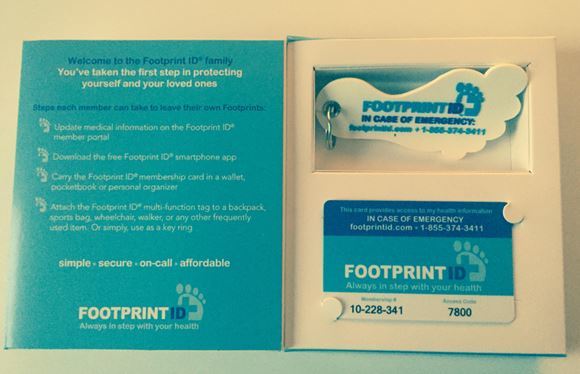Today’s article is from Beth Tofel, found and President of FootprintID. It helps parents easily store and keep track of their child’s medical records and share their health information with physicians, emergency responders, family members and friends—when they need it most.

For those of us who have sent children off to college we know the anxiety and stress that comes along with the excitement. The oldest child is often the most challenging because of the unknowns and then when the youngest heads off it can leave the quiet in our homes sounding very loud.
One of the things I hear so often is “what if my child gets sick?”. For the first time we are not right there to “diagnose” what is wrong, speak to the doctors or nurses, or immediately participate in decisions related to a child’s health.
Worse than that, because of HIPAA laws, the doctors are not allowed to speak to us without our child’s permission. I suppose that works fine for a cold, cough, or strep throat. But what happens when the unthinkable happens. Your child can’t communicate to give the doctor permission to speak to you. This is not something we want to think about, but as responsible parents we MUST.
I spoke to a lawyer friend recently, who shared some of the stories she has heard when needed documents are not available in a situation such as this. Sometimes parents are simply told to come to the hospital, but what is going on with their child can’t be shared. They don’t know if they are arriving to find a broken leg, or god forbid, their child in critical condition.
What happens if your child has an allergy, takes medication, or suffers from a condition that an emergency responder doesn’t know about. Or there is a decision to be made as to how to treat your child. All of this information can be critical to provide efficient, effective and timely care in an emergency.
What do parents need to do?
So what do we do? Most importantly we need to have each of our children, upon turning 18, sign a Health Care Proxy and Power of Attorney giving permission for us to speak on their behalf and participate in care decisions with doctors.
The next challenge is to make sure that those documents are available if they are ever needed.
FootprintID can provide a solution to the challenges outlined above and assist in closing the gap that exists in the sharing of health information.
All of one’s medical information and health history, including documents such as POA and Health Care Proxies can be stored in one HIPAA compliant location. It is then immediately accessible to parents, the child, health care providers and emergency personnel. The information can be retrieved via web portal, smartphone app or our 24 hour call center.
Here is a link to a video that easily explains this service and how it can be beneficial to you, and your child as they head off to college.
Why FootprintID Video
The college experience is made up of many components. Academics are primary, but also learning to manage one’s finances, health, social experiences, life is crucial to the maturation process that takes place during these years. If we can keep our children safer by knowing their medical information is on hand and allowing us to participate in their care, at the same time that they learn to manage their own health experiences, everybody wins. As parents it would certainly help us sleep better at night.





